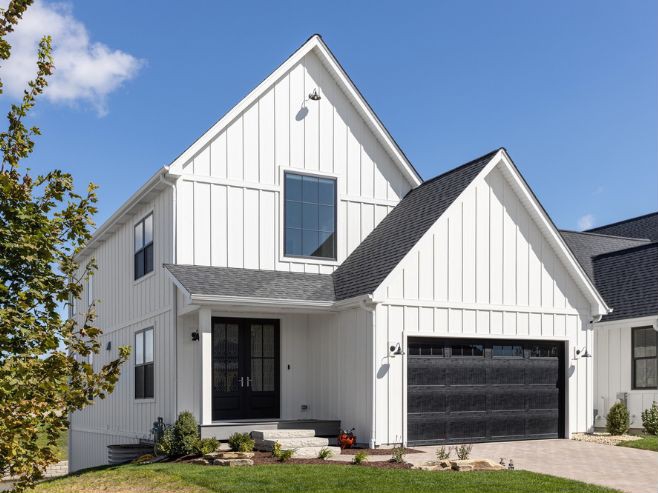
When talking about prefabricated residences, also called modular homes, mobile homes or temporary structures often mistakenly spring to mind.
On the contrary, prefabricated homes are long-lasting, sturdy, and customizable residences initially constructed in a factory and then assembled on the homeowner’s lot. In Québec, the most popular manufacturers are Bonneville Homes, Maisons Usinées Côté, Maisons Laprise, and Maisons Confort Design.
But in what way do prefabricated homes differ from traditionally constructed ones, erected directly on the building site? And conversely, what similarities do they share? Let’s take a closer look!
1. The Construction Process
Prefabricated home: Is constructed in separate sections (modules) in a factory, and then transported and erected on-site. This process enables quality control and protects the materials from the elements.
Traditional home: Is built directly on-site, out in the open. Bad weather or material availability issues on the building site may cause delays. Materials stored outdoors can be protected as needed.
2. Construction Deadlines
Prefab: Are often move-in ready in a few weeks since factory manufacturing speeds up the process.
Traditional: Deadlines can be pushed back many months, chiefly due to seasonal factors and the project’s complexity.
3. Cost and Budget
Prefab: With fewer surprises arising from delays or going over budget, it’s easier to predict the cost.
Traditional: It’s harder to control costs because of unforeseen problems on the construction site or decisions made along the way.
ü What they have in common: The final cost in both cases mostly depends on the types of materials chosen, the size, and level of customization.
4. Layout Customization
Prefab: While companies offer base models (bungalow, cottage, contemporary), buyers can modify almost every floor plan as desired: extension, additional storey, wall position, etc.
Traditional: Even more creative freedom, all the more so if you work with an architect or a custom homebuilder. You can literally build from the ground up!
5. Financing and Insurance
Many people wonder whether a prefabricated home is financed just like a “classic” residence. Obtaining a mortgage and insurance is usually largely the same, as long as the house conforms to building codes.
Prefab: Financial institutions generally grant mortgages for this type of house, provided that they’re erected on a foundation and the homeowner owns the lot. When it comes to insurance, certain insurers require proof of compliance and anchoring to cover risks (just like for any kind of residence!).
6. Durability and Maintenance
Some people worry that modular homes aren’t “as sturdy.” And yet, they’re structurally designed to last.
Plus, like for any home, carrying out basic maintenance is essential: checking seals, taking care of exterior cladding, inspecting the roof.
In short, nothing requires regular maintenance like a classic home!
7. Resale Value
Prefabricated homes retain their resale value to a similar degree to traditional houses, especially it they’ve been properly maintained and were erected on a compliant lot.
So there’s no need for concern on that front!
8. Municipal Bylaws and Restrictions
No matter the kind of house, local zoning bylaws still apply. Certain municipalities impose specific regulations (minimum surface area, type of foundation, architectural style). It’s always best to check the zoning bylaws before you purchase a lot.
Good to Know
Lots:
- Finding an available and compliant lot can prove difficult, particularly in urban and suburban zones.
- Trucks must be able to access the site to deliver the modules.
- You may have to coordinate the work of several professionals on-site: site preparation, foundation, delivery, electricity and sewer connections, etc. This may entail significant costs that you must budget for. Check with the prefabricated home company to see if they offer a turnkey service.
Transportation:
- The large modules often require special permits and complex logistical planning to transport them to the building site.
So, which one will you choose?